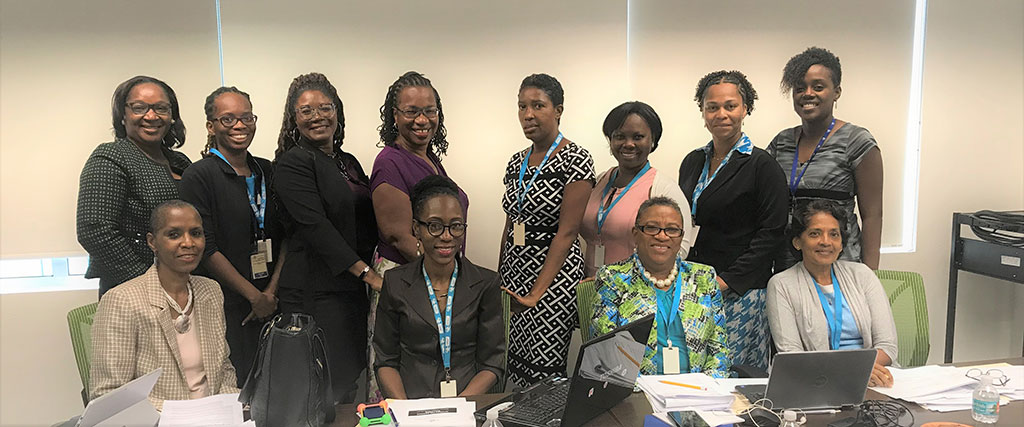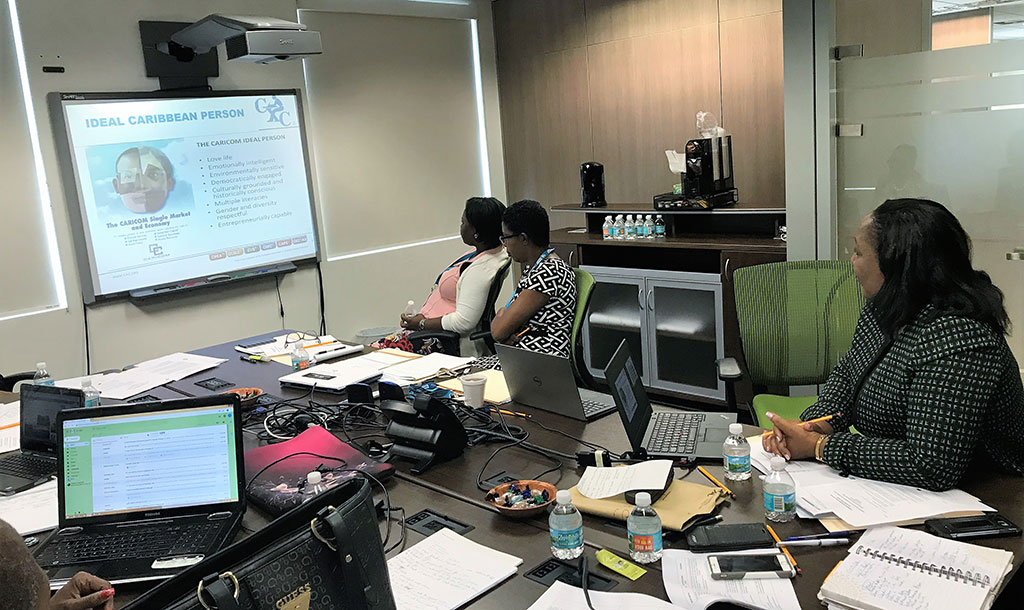- November 04th, 2018
- /
- Fan Articles
- /
- 0 Comments
- /
- CXC Planning to Include NCDs in their Curriculum

The Caribbean Examination Council ‘s CCSLC Integrated Science Syllabus Review Committee-2018 Standing from left: Claudia Jack (CXC Jamaica), Natasha Sobers (UWI Barbados), Donna Giles (CXC Barbados), Alafia Samuels (UWI Barbados), Mavis Guiste (Dominica), Charisse Gumbs (St.Kitts), Joselyn Theophile-Richardson (Anguilla), Tanya Martelly (UWI Barbados). Seated from left: Denise Carter (MOH Barbados), Alicea Bigby-Smart (Jamaica), Pamella Hunte (Barbados), Catherine Clifford (St. Lucia)
The Caribbean Examinations Council (CXC), supported by the new IDRC funded, UWI led project, Improving Household Nutrition Security and Public Health in CARICOM (FaN), is in the process of revising the curriculum of some subjects to include more content about Non-Communicable Disease (NCD) and their risk factors.
According to Principal Investigator of the project, Prof. Alafia Samuels, this is in keeping with the recommendations that came out of the previous evaluation of the CARICOM Heads of Government Port of Spain Declaration on NCDs which was led by the George Alleyne Chronic Disease Research Centre of the University of the West Indies.
Prof. Samuels noted that the team was starting with two subjects – Human and Social Biology at the Caribbean Secondary Education Certificate (CSEC) level and Integrated Science in the Caribbean Certificate of Secondary Level Competence (CCSLC) curriculum. However, there are plans to extend this to other subjects.

CCSLC participants at work
“There are other subjects like biology for example, home economics, even english literature. There are books that maybe the children could be reading that would give them some insight into marketing and how they are being persuaded to want certain food and drink through marketing… And even though the project is focused on three countries, with CXC you get all the countries of the Caribbean. So it really is what you call a multiplier. One intervention which could have a big impact down the road,” Prof. Samuels explained.
During meetings with CXC, the team highlighted the magnitude of the problem of NCD’s in the region as well the social and commercial determinants of health. “We feel that educated children are empowered children and CXC has been a very good partner for us to work with,” Prof. Samuels concluded.



